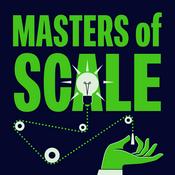735 episodios
What’s New in React 19.2: Compiler, Activity, and the Future of Async React - JSJ 670
08/1/2026 | 1 h 15 minIn this episode of JavaScript Jabber, I sat down with Shruti Kapoor, independent content creator and longtime React educator, to dig into what’s actually new — and worth getting excited about — in React 19.2. While it may sound like a “minor” release on paper, this update delivers some genuinely powerful improvements that can change how we build and reason about React apps.
We talked through React Compiler finally becoming stable, how the new Activity component can dramatically simplify state management and UX, what View Transitions mean for animations, and why new tooling like Performance Tracks in Chrome DevTools is such a big deal for debugging. If you care about performance, async React, or writing less code with better results, this one’s for you.
Links & ResourcesShruti Kapoor’s YouTube Channel (React, AI, Web Dev):
👉 https://www.youtube.com/@shrutikapoor08
React 19 & 19.2 Documentation:
👉 https://react.dev
CodeRabbit (AI Code Review Tool):
👉 https://coderabbit.ai
Become a supporter of this podcast: https://www.spreaker.com/podcast/javascript-jabber--6102064/support.- AI is writing more of our code than ever before—but should we actually trust it? In this episode of JavaScript Jabber, I sat down with Itamar Friedman from Qodo (formerly Quoto) to dig into one of the biggest questions developers are wrestling with right now: What happens when AI is generating code, reviewing code, and shaping how we ship software?
We explore where AI fits into modern code review, whether developers should be worried about job security, and how human responsibility still plays a critical role—even in an AI-powered workflow. From guardrails and quality standards to the future of agent-driven development, this conversation goes beyond hype and gets into what’s actually working today (and what still needs a human in the loop).
AI isn’t replacing developers—it’s changing how we build, review, and take ownership of software. If you enjoyed this conversation, make sure to rate, follow, share, and review JavaScript Jabber. It really helps the show, and it helps more developers join the conversation. Thanks for listening—and we’ll see you next time!
Become a supporter of this podcast: https://www.spreaker.com/podcast/javascript-jabber--6102064/support. The Real State of Tech Hiring: AI, Ghosting, and the Developer Drought - JSJ 698
10/12/2025 | 1 h 4 minIn this episode of JavaScript Jabber, Steve Edwards and I kick things off by catching up on life — from winter weather and marathon training to health journeys, CrossFit, and some behind-the-scenes personal stories that shaped how we think about wellness and longevity. After warming up, we shift our focus to the state of the tech job market, something both of us have been watching closely and experiencing firsthand.
We dive into the challenges developers are facing today — especially juniors — and compare our hiring and job-hunting experiences, the impact of AI on resumes and screening, the slowdown in bootcamps, and why the industry feels different than it did even a few years ago. We also unpack economics, incentives, and business realities affecting hiring, plus what developers should be doing right now to stand out.
Become a supporter of this podcast: https://www.spreaker.com/podcast/javascript-jabber--6102064/support.- In this episode, I sit down with developer and speaker Sagi Carmel to dive deep into Astro, why it’s gaining so much traction, and how it compares to frameworks like Next.js, Nuxt, Remix, and SvelteKit. We explore what makes Astro uniquely powerful — from its server-first approach and island architecture to its simplicity, speed, and ability to integrate with any front-end framework you want.
Sagi also walks me through real-world use cases, including how he built Israel’s official Census website with Astro, why scoped CSS and server components simplify the development experience, and how tools like HTMX and view transitions make web UX buttery smooth. If you’ve been curious about Astro, this conversation is a terrific deep dive into both its fundamentals and its advanced capabilities.
🔗 Links & Resources
Astro Documentation: https://astro.build
HTMX: https://htmx.org
Looker (Google Cloud): https://cloud.google.com/looker
BigQuery: https://cloud.google.com/bigquery
Sagi Carmel on YouTube: @SagiCarmel
Sagi Carmel on LinkedIn: Search “Sagi Carmel”
Become a supporter of this podcast: https://www.spreaker.com/podcast/javascript-jabber--6102064/support. - It feels great to finally be back on the mic after a stretch of travel, work, and general chaos, and in this episode we’re diving into a topic that’s been coming up more and more in everyday developer conversations: how to actually use AI in your JavaScript development workflow. This isn’t about adding AI features to your app — it’s about using LLMs and AI-powered tools as part of your day-to-day coding practice.
We talk through the tools we each rely on, how they’ve changed the way we write code, where they fall short, and where they can save hours of work. We also dig into the real differences between “AI-assisted coding” and “vibe coding,” the unexpected pitfalls of having AI write your tests, and the growing concerns juniors are facing in a job market that looks very different than it did just a few years ago. If you’re trying to figure out how to work with AI without losing your sanity (or your code quality), this one’s worth a listen.
Become a supporter of this podcast: https://www.spreaker.com/podcast/javascript-jabber--6102064/support.
Más podcasts de Economía y empresa
Podcasts a la moda de Economía y empresa
Acerca de JavaScript Jabber
Stay current on JavaScript, Node, and Front-End development. Learn from experts in programming, careers, and technology every week.Become a supporter of this podcast: https://www.spreaker.com/podcast/javascript-jabber--6102064/support.
Sitio web del podcastEscucha JavaScript Jabber, Hágale como quiera y muchos más podcasts de todo el mundo con la aplicación de radio.net

Descarga la app gratuita: radio.net
- Añadir radios y podcasts a favoritos
- Transmisión por Wi-Fi y Bluetooth
- Carplay & Android Auto compatible
- Muchas otras funciones de la app
Descarga la app gratuita: radio.net
- Añadir radios y podcasts a favoritos
- Transmisión por Wi-Fi y Bluetooth
- Carplay & Android Auto compatible
- Muchas otras funciones de la app


JavaScript Jabber
Escanea el código,
Descarga la app,
Escucha.
Descarga la app,
Escucha.








































